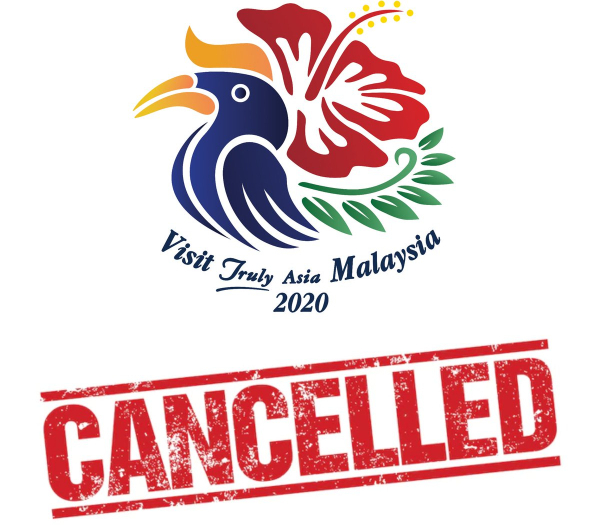Since COVID-19 was declared a pandemic, and governments started shutting their borders, the tourism and airline industries virtually ground to a halt overnight.
The sharp decline put millions of jobs and businesses at risk, with prolonged lockdowns and seemingly no end in sight for the lifting of travel bans (for good reason, of course).
In Malaysia, before the pandemic came into existence, investment in property for short-term lets like AirBnB had gained popularity among property owners in recent years.
However, the attractive rental returns as a source of passive income now continues to be severely impacted due to the movement control order, interstate travel ban, and almost zero international travel.
The uncertainty of the last year has left owners and property managers of short-term rentals unsure about what their next steps should be.
With accommodation being a huge part of travel, we first take a look at some facts and figures behind tourism in the last one year, so you can have a better idea of what to expect.
How COVID-19 Has Impacted Global Tourism
It is estimated that government reactions to the crisis have put between 100 and 120 million direct tourism jobs at risk.
Many of these businesses are small mom-and-pop shops, who lack the cash flow to sustain themselves, and have been forced to close for good.
According to the latest data from the United Nations World Tourism Organization (UNWTO), 2020 marked the worst year on record for global tourism, with international arrivals dropping by 74%.
Travel bans coupled with soft demand saw 1 billion fewer international arrivals in 2020, compared to 2019. June 2020 saw international tourist arrivals fall by as much as 93% compared to the year before!
The UNWTO World Tourism Barometer indicates that the collapse in international tourism represents an estimated loss of USD1.3 trillion in export revenues, severely impacting countries that rely heavily on tourism.
This unfortunate reality is more than 11 times the loss recorded during the 2009 global economic crisis. Many countries in Asia and the Pacific region, which rely heavily on tourism, saw the biggest decline at -84%.
This was a direct result of high levels of travel restrictions, on top of being the first in the region to suffer the impacts of the virus.
How Tourism In Malaysia Has Been Impacted
Malaysia had grand tourism plans for 2020. We started off by unveiling the Visit Malaysia 2020 logo, together with hopes of seeing 30 million international tourist arrivals, and RM100 billion tourist receipts.
Unfortunately, much like ‘Wawasan 2020’, it was all just a dream. Malaysia was not spared from the impact of the lockdowns and recorded a 78.6% decrease in tourist arrivals from January to September 2020.
The country also saw a mere 4.3 million tourist arrivals, compared to over 20.1 million for the same period last year.
So, When Can We Expect Tourism To Recover?
UNWTO conducted a global survey among its Panel of Tourism Experts on the impact of COVID-19 on tourism and the expected time of recovery.
When asked about when international tourism will return to pre-pandemic levels in their country, 43% of respondents indicated 2023, while 41% expect it no earlier than 2024!
It is undeniable that we are swimming in uncharted territory with the never-before-seen methods that governments have set to battle the pandemic.
With a conservative outlook in mind and in an attempt to hedge against losses, we look at some practical actions you can take to manage your short-term rentals.
Here’s What You Can Do With Your Short-Term Rentals
1) Keep An Eye Out For Signs of Recovery
As a start, you can use the UNWTO Tourism Recovery Tracker to understand how tourism levels in the region are taking shape.
This will help you make more informed decisions to base your next course of action on. You wouldn’t want to sell or rent out your property on a long-term basis, if tourism starts picking up in Southeast Asia.
2) Consider Renting It Out Long-term
If you’re worried about not being able to make your monthly repayments, it might be a good time to switch gears and look for someone who is keen on moving in for long-term stay.
You could start with a 1+1 year lease, where both you and the tenant can choose to either continue or terminate the lease after one year.
3) Offer Your Unit To A Family In Need
With unemployment steadily on the rise and many struggling to make ends meet, you could choose to be a lifeline for those in need.
For a nominal fee (or for free), why not consider opening your property to those who really need shelter and security before finding a way to get back up on their feet?
4) Cater To Domestic Travellers
While international travel might take a few years to recover, there are still little pockets of opportunity for Malaysians to have a short weekend getaway somewhere nearby.
Now, we know a true Malaysian can’t resist a good deal. Why not reduce your prices and have value add-ons (like a variety of free flow beverages and snacks) that strike at the heart of your fellow countrymen?
This way, you will not only attract more local guests, but will also be helping to build up the Malaysian economy. Don’t forget to keep strict SOPs in place!
5) Sell Off Your Property
Do you have financial obligations and find it hard to meet them, on top of surviving on a daily basis? Perhaps it’s time to cut your losses and consider selling your property, difficult as that option might be.
The key for property investors is to figure out where you stand financially. Do you have sufficient cash flow without the income from your short-term lets? Or are you racking up expenses AND sustaining losses?
Since the short-term rental business looks like it’s going to be taking a hit for the next year or two, now is the best time to seriously sit down and start assessing your situation.
Learn to manage your risks and most importantly, learn to manage your own expectations. While you’r
Disclaimer: The information is provided for general information only. PropertyGuru International (Malaysia) Sdn Bhd makes no representations or warranties in relation to the information, including but not limited to any representation or warranty as to the fitness for any particular purpose of the information to the fullest extent permitted by law. While every effort has been made to ensure that the information provided in this article is accurate, reliable, and complete as of the time of writing, the information provided in this article should not be relied upon to make any financial, investment, real estate or legal decisions. Additionally, the information should not substitute advice from a trained professional who can take into account your personal facts and circumstances, and we accept no liability if you use the information to form decisions.






